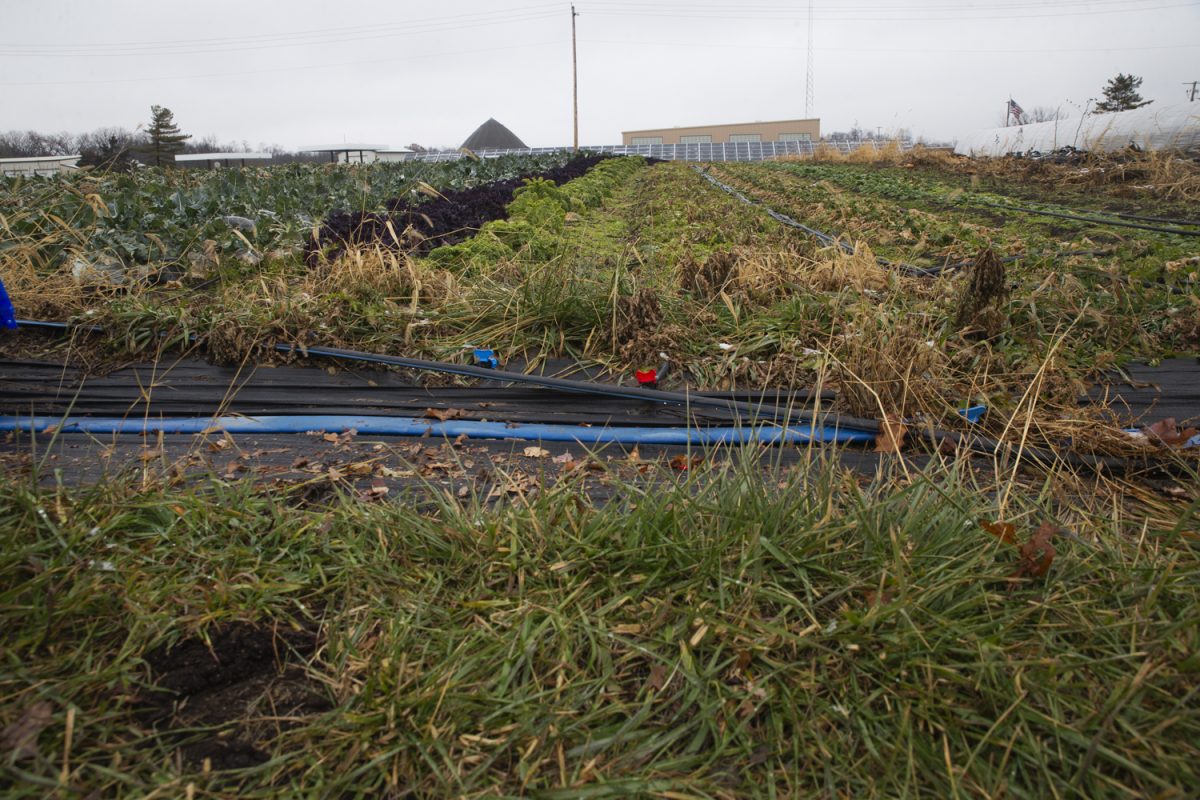After a loss in Iowa soil nutrients because of farming practices, Johnson County will implement incentives and tests to improve and protect soil health in the county.
The Johnson County Board of Supervisors approved a resolution on Nov. 9 to reduce rates of application of herbicides, pesticides, fertilizers, and tillage passes on county-owned land. The county will also perform randomized soil testing on county-owned property.
Data obtained by the Des Moines Register showed a loss of at least half of Iowa’s original 96 billion tons of soil organic carbon over four generations of farming. The report revealed that wind and water erosion combined with tillage and lack of biodiversity results in farmers losing 12 million tons of soil’s organic carbon each year.
According to the Natural Resources Conservation Service of the U.S. Department of Agriculture, Iowa is a leading state in soil health conservation, incorporating practices established within Johnson County’s resolution, such as no-till farming.
The county will reimburse people up to 50 percent of what it costs to restore the soil on their land who apply to a soil health cost-share program, which started up two years ago.
This program encourages the reduction of tillage, herbicide, and fertilizer application rates on private property such as farmland.
Kasey Hutchinson, Johnson County soil and water conservation coordinator, said the overall idea is to eliminate the use of chemical applications by adding compost, which improves soil health and reduces the need for chemical control of pests and weeds.
“It provides all of these ecosystem services that we just kind of again take for granted because it’s below our feet,” Hutchinson said.
According to the most recent data, Johnson County owns 2,274 acres or 9.5 percent of land in the county. The resolution will reduce the use of chemicals and tillage on this land, as well as implementing annual soil tests to analyze the effectiveness of these practices.
The USDA’s National Agricultural Statistics Service reported Iowa’s most widely used pesticide in the 2021 growing season was atrazine, applied to 69 percent of planted acres. Iowa legislation limits atrazine use to three pounds or less per acre per calendar year.
According to the agenda, the board also resolved to provide non-financial support to the Johnson County Soil and Water Conservation District with technical and program assistance to private landowners to reduce soil loss and improve soil health.
The proposal for the resolution was written and submitted to the board in January by Scott Koepke, director of Garden Bridge Outreach and Soilmates founder.
Koepke said he was driven to write the proposal because soil contains living organisms, and he questions what people are doing to keep it alive.
“I’m trying to get the conversation started so that all interests can come to the table and find some common ground, no pun intended,” Koepke said.
Koepke said the best way to reach common ground is money, and if farmers spray fewer chemicals on their crops and reduce tillage, they are improving the health of the land they care for and saving money.
He does not want to place a ban or mandate chemicals but rather diminish their use, spread education, and implement new, healthier practices, such as planting cover crops to reduce soil erosion, increase moisture, and suppress weeds outside of the growing season of the main crop.
After the holidays, Koepke will meet with Hutchinson, and Josh Busard, director of Johnson County Planning, Development and Sustainability, and begin planning the soil testing.
Busard said he hopes to begin soil testing within the next few months, once the location of the tests, what the tests are testing, and the lab where samples will be sent, are finalized.
Within the first year of soil testing, the tests will primarily focus on macronutrients, micronutrients, pH, and organic matter content.



